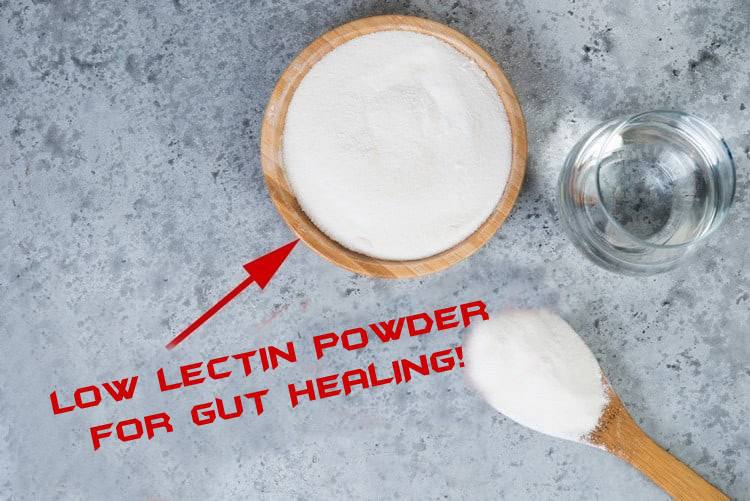Low Lectin Spices – A Powerful & Simple Guide
Have you ever heard of lectins and how they can affect your health?
Let’s explore the world of low lectin spices and their numerous benefits, from reducing inflammation to improving digestion and more. These spices play a crucial role in enhancing your overall well-being.
Discover some popular examples of low lectin spices and learn how you can incorporate them into your cooking routine. Stay tuned to learn more about the wonders of low lectin spices!
What Are Lectins?
Lectins are proteins found in many foods, with the ability to bind to cell membranes and affect the immune system. They have been linked to autoimmune diseases and can impact digestive health.
When lectins interact with the cells lining the gut, they can cause inflammation and disrupt the delicate balance of the digestive system. This disruption may lead to conditions such as leaky gut syndrome, where the intestinal barrier becomes more permeable, allowing harmful substances to enter the bloodstream. This breach in gut integrity can trigger an immune response, further exacerbating inflammation and potentially contributing to the development of autoimmune diseases. For individuals with pre-existing autoimmune conditions, avoiding high-lectin foods may help alleviate symptoms and improve overall well-being.
What Are Low Lectin Spices?
Low lectin spices are flavorful ingredients that offer health benefits such as being anti-inflammatory and digestion-friendly. Incorporating these spices into cooking can enhance both taste and wellness.
These spices, which are typically naturally low in lectins, can include popular options like black pepper, cumin, and mustard. Not only do these spices add depth and complexity to dishes, but they also have been shown to possess antioxidant and antimicrobial properties.
By incorporating low lectin spices into your meals, you can support your body in maintaining healthy gut function, reducing inflammation, and improving overall digestive health. Whether you’re seasoning a stew, marinating meats, or infusing oils, the versatility of these spices makes them a valuable addition to any kitchen.
How Do Low Lectin Spices Differ From High Lectin Spices?
Low lectin spices differ from high lectin spices in that high lectin spices have been shown to contain lectins. While high lectin spices may trigger adverse reactions, low lectin options provide culinary versatility and health benefits.
Generally however, high lectin spices are treated as though they aren’t high lectin, potentially due to the quantity of the food you are using. For example, a small amount of powder may be 1/1000th the amount of a bite of vegetables.
In the future, we will add an article specifically on high lectin spices.
High lectin spices are known for their potential to cause inflammation or other symptoms in some individuals due to their lectin content. On the other hand, low lectin spices like turmeric and cumin are prized for their anti-inflammatory properties and ability to enhance the flavors of various dishes without the same risk of adverse reactions. Incorporating both high lectin and low lectin spices in your diet can offer a balance of flavor, nutrition, and potential health benefits, but it may be beneficial for some people to not eat certain spices high in lectins.
What Are the Benefits of Using Low Lectin Spices?
Using low lectin spices offers multiple benefits, including reduced inflammation, improved digestion, and a more digestion-friendly approach to cooking and meal preparation.
These spices are known for their anti-inflammatory properties, which can help in alleviating symptoms of conditions like arthritis and inflammatory bowel diseases. By incorporating low lectin spices into your meals, you not only enhance the flavors but also support your gut health.
These spices can aid in weight management and maintaining overall well-being by promoting a healthy gut microbiome. Their natural properties can also assist in boosting immunity and providing essential nutrients for optimal health.
Are There Any Risks or Side Effects of Using Low Lectin Spices?
While low lectin spices offer numerous benefits, there are potential risks and side effects to consider. These include allergic reactions, interactions with medications, digestive issues, and concerns for individuals with specific dietary restrictions.
Allergic reactions can vary from mild to posing a serious threat to some individuals. You should of course avoid eating any foods that you are allergic to.
Certain spices also may interact with medications, altering their effectiveness or causing adverse effects.
It’s also plausible that eating spicy foods can cause unhelpful symptoms or sensitivity-like reactions in certain individuals regardless of their lectin content. In those instances it may be best to reduce or remove intake of them in your diet.
Those with dietary restrictions, such as gluten intolerance or specific food allergies, need to be cautious about incorporating low lectin spices or other new foods into their daily meals.
What Are Some Examples of Low Lectin Spices?
Here are some foods that all were shown not to contain lectins in testing: ¹
- Black pepper
- Zedoary (white turmeric)
- Black and green cardamom
- Galangal
- Tamarind
- Cumin
- Fennel
- Anise
- Licorice
- Mustard
Generally speaking, most spices are considered to be low in lectins, at least the powdered ones, since they are used in such a small quantity compared to other foods.
Resources:
1. http://medicinalplants-kr.org/

